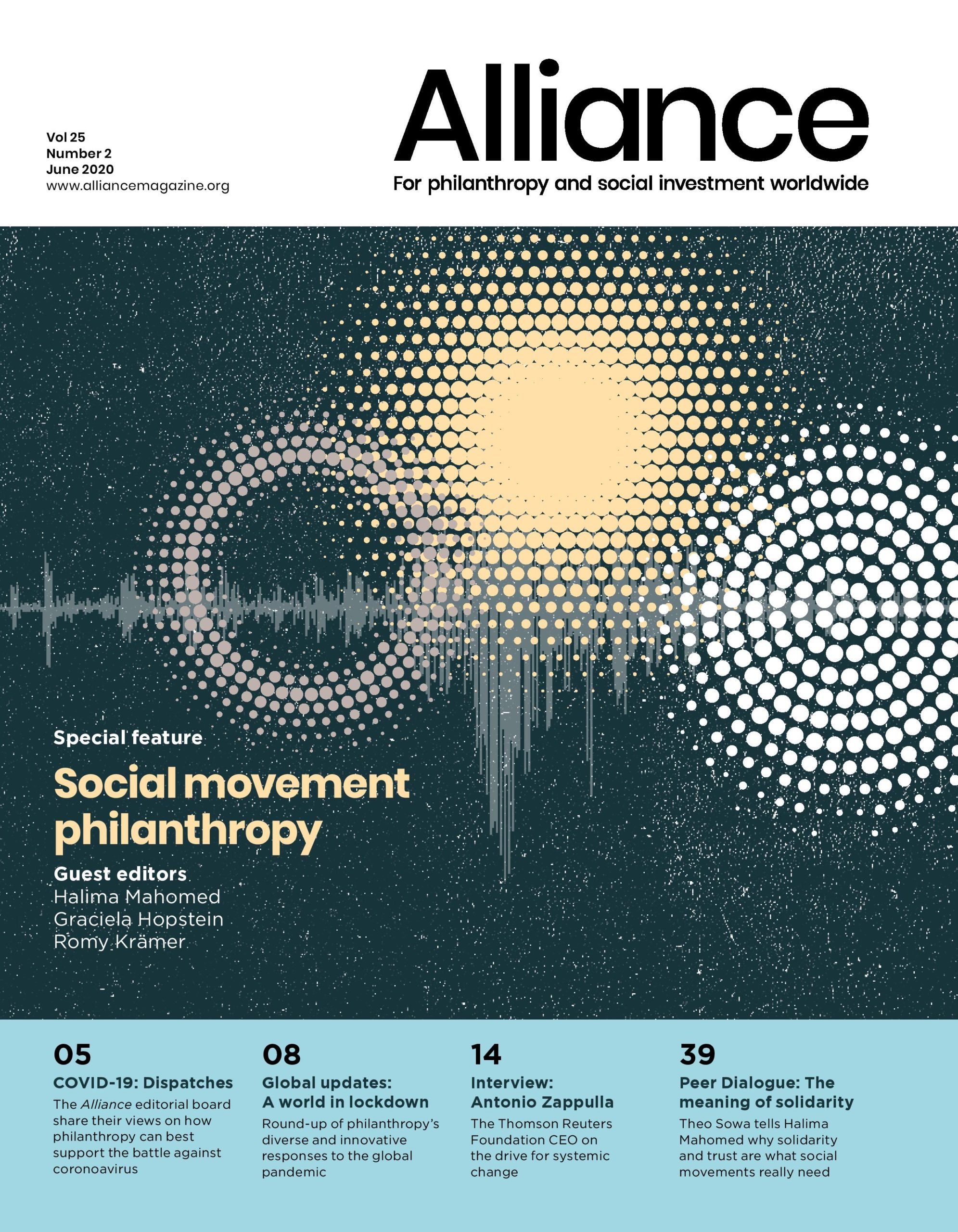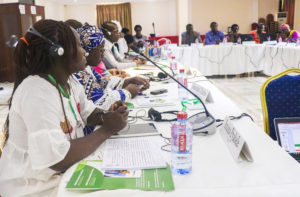Differences between formal NGOs and social movements have kept them apart, but it doesn’t have to be that way
Progressive civic activism of all stripes is under attack, and targeted further under the pretext of pandemic response, yet it remains fragmented and vulnerable. How can CSOs and social movements overcome the barriers preventing collaboration to defend and expand their shared physical and online space? And how should funders support these efforts?
In September 2019, the Ghana based West Africa Civil Society Institute (WACSI) and the Fund for Global Human Rights convened 20 activists from 13 countries across Anglophone and Francophone West Africa to explore how CSOs, social movements and funders can foster practical solidarity during this assault on activism. Here’s what we’ve learned so far.
Embrace the differences
Differences between CSOs and social movements create barriers to collaboration, among them ideological stances, disparate resources, incompatible goals, a lack of trust, perceptions of doubtful legitimacy and relevance, sensitivities around political partisanship, and different engagement approaches.
Acknowledging these tensions that have stymied cooperation is critical to moving beyond them. But relying on rigid definitions to determine support risks entrenching an unhelpful binary between formal CSOs and social movements.
By resourcing these types of informal networks, funders can help diverse local actors coordinate their distinct approaches, exchange information and mobilise together.
For example, when Senegalese social movement Y’en a Marre registered as an association and collaborated with local CSOs and international NGOs like Oxfam, people mistakenly assumed that it had abandoned its grassroots origins. Although its transition from an informal entity to a registered movement enabled Y’en a Marre to access new funding and continue its work, the move undermined its popular appeal.
Offering support to movements that remain informal or unregistered, rather than forcing them to become legal entities, can be essential to maintaining credibility. CSOs and social movements enjoy distinct constituencies and capacities – funders should consider what kind of support will improve, not weaken, their local standing.
Support shared platforms
For CSOs, social movements, and independent activists who share many concerns over the deteriorating environment for activism, one way to both enhance individual credibility and strengthen collective influence has been the creation of common digital or physical platforms.
In Nigeria, Spaces for Change, a registered CSO, formed the Action Group on Free Civic Space, bringing well-known NGOs like Amnesty International Nigeria together with a network of independent bloggers, prominent religious personalities and media influencers acting as civic ambassadors to disseminate information and mobilise around legal and policy proposals that affect core freedoms. The Action Group on Free Civic Space has fuelled public debate and successful resistance to controversial social media and hate speech bills, and a restrictive NGO bill, as well as advocating for detained activists, including in its recent focus on the crackdown fuelled by COVID-19 measures.
By resourcing these types of informal networks, funders can help diverse local actors coordinate their distinct approaches, exchange information and mobilise together.
Facilitate practical solidarity
Another avenue for successful collaboration has been leveraging unique assets, such as popular mobilisation or legal aid provision, to support others as repression intensifies.
In Cameroon, the conflict between Anglophone separatists and government forces has fuelled a government crackdown on civic space. Since the social unrest began in 2016, the Centre for Human Rights and Democracy in Africa (CHRDA) has drawn on its reputation and links to global rights groups like Human Rights Watch, as well as its legal and financial resources, to act in solidarity with social activists and protestors like Mancho Bibixy and the Coffin Revolution. CHRDA documented the violations targeting protestors and journalists and rallied international attention, mobilising online and providing legal and financial support.
Similarly, in Guinea, activists faced repression for protesting President Alpha Condé’s plan to amend the constitution and run for a third term. The Consortium des Associations des Jeunes Pour la Défense des Victimes de Violences en Guinée (COJEDEV) collaborated with informal movement leaders to organise events and provide a legal defence for detained activists.
Funded initiatives must be community-led rather than donor-driven, so that they are responsive to the unique needs of their communities.
Whether through discreet cooperation or more formalised alliances, funders should enable activists to show up for one another in these ways that capitalise on specific strengths and compensate for particular weaknesses. Groups must have the flexibility and freedom to put their resources behind each other.
If social movements, activists, and CSOs are to better collaborate in the fight against social injustice in a time of closing space, funders have to ensure their efforts are appropriately resourced.
Funders must make resources accessible to a greater diversity of actors by simplifying grant applications, helping partners with proposals and offering support to unregistered or informal groups. One way to explore funding for social movements could be through a formal organisation acting as a fiscal agent for an unregistered group.
Funded initiatives must also be community-led rather than donor-driven, so that they are responsive to the unique needs of their communities. Flexible funding is key to giving groups room to strategise, adapt and collaborate.
Above all, the most important aspect of successful collaboration must be the bedrock on which it is built. Fundamental power differences between CSOs and social movements are a constant threat to deeper partnerships. Practising and promoting humility, complementarity and flexibility is key to channelling collective influence and resources towards common goals. For CSOs, activists, social movements and funders, centring these essential values will help lay solid foundations for the future success of diverse and collaborative activism.
Nana Asantewa Afadzinu is executive director, West Africa Civil Society Institute.
Email: nafadzinu@wacsi.org
Twitter: @NAfadzinu
James Savage is programme officer, Enabling Environment for Human Rights Defenders Programme, Fund for Global Human Rights.
Email: jsavage@globalhumanrights.org
Twitter: @jamesmsavage








Comments (0)